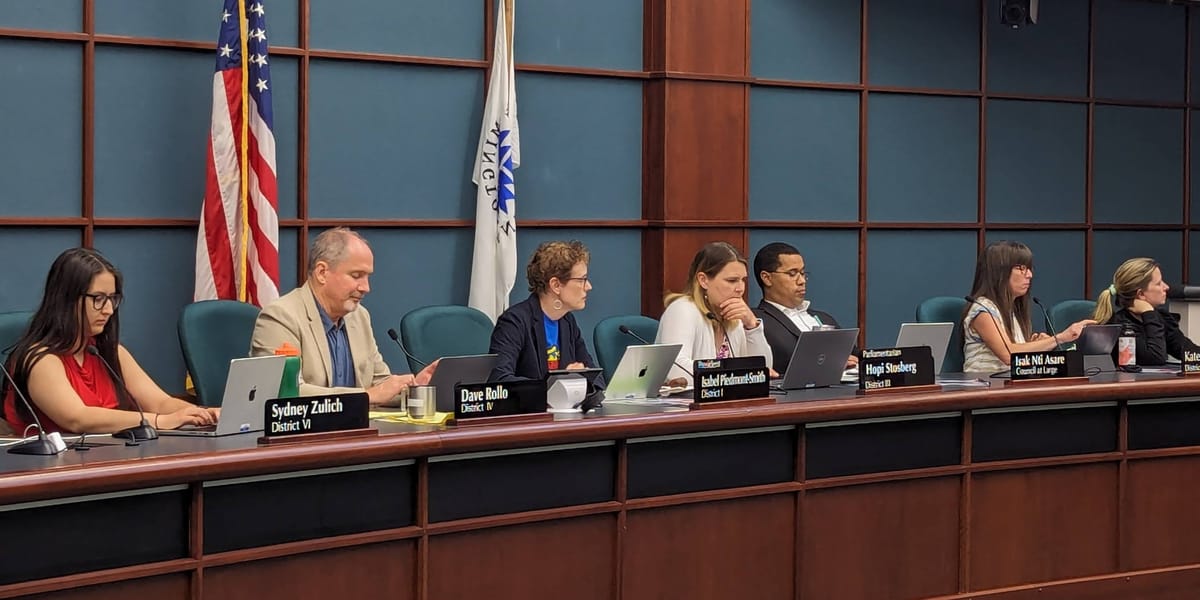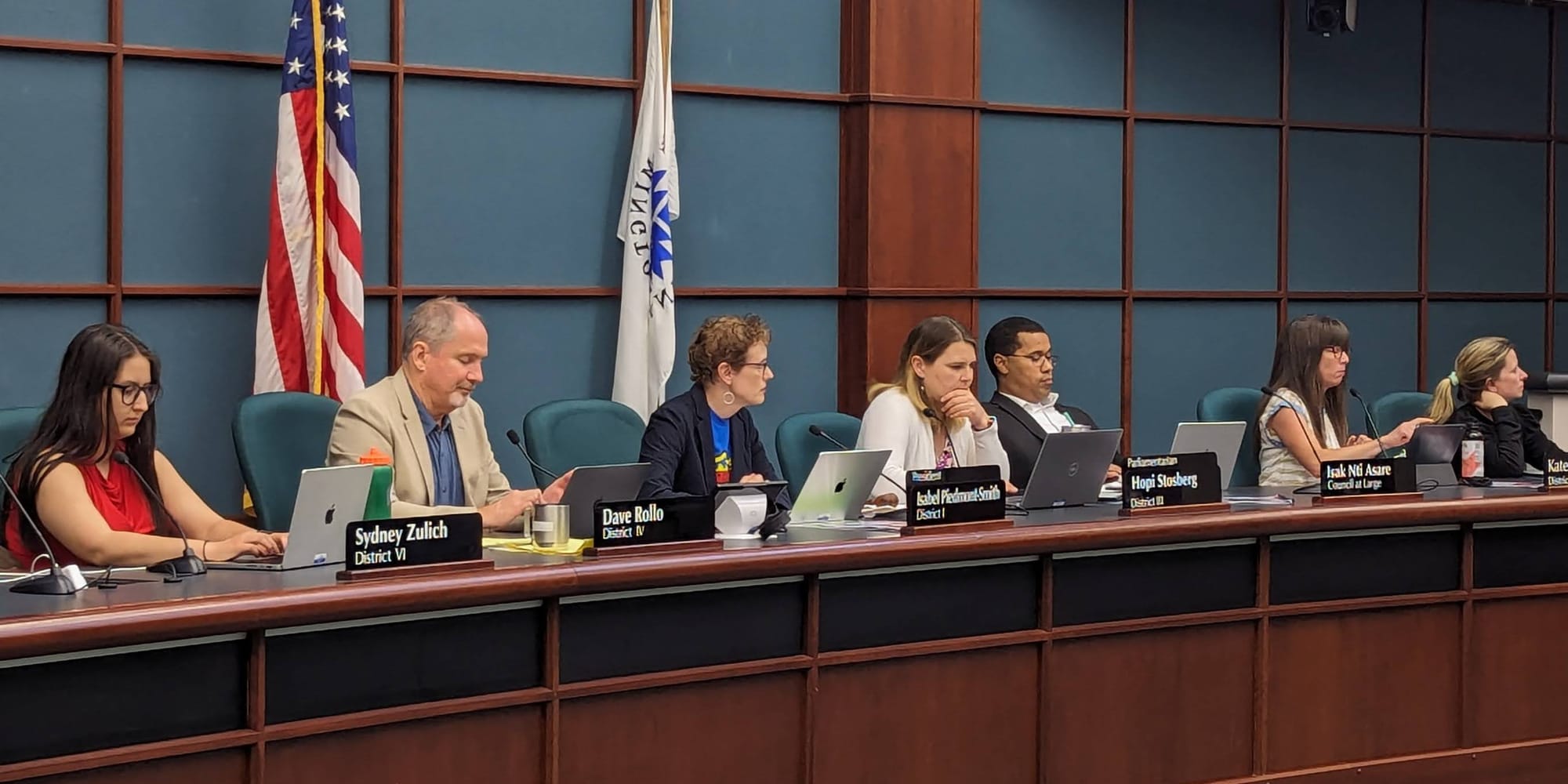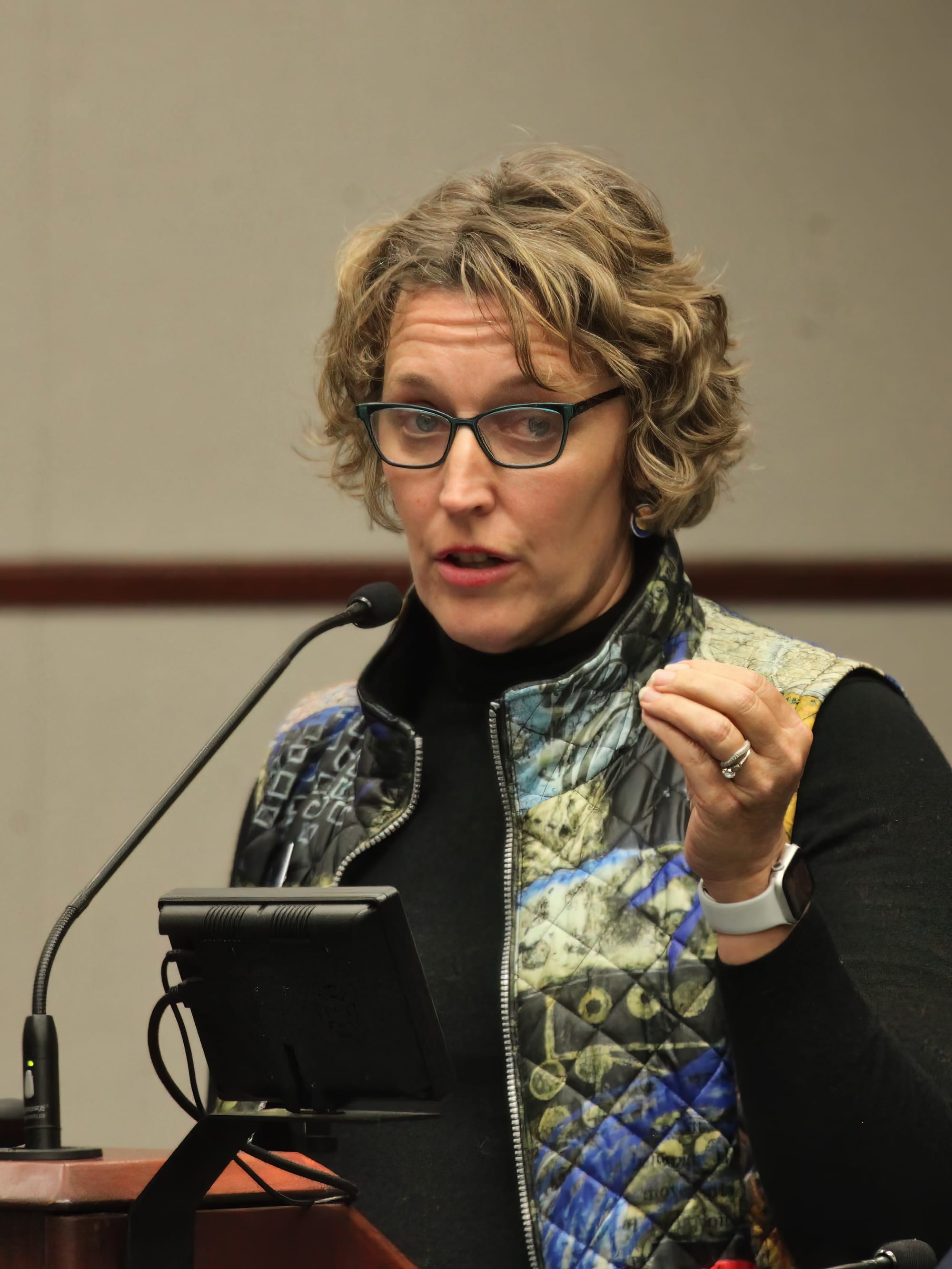2 change votes, Bloomington city council overrides mayoral veto of anti-pipeline resolution




Bloomington mayor Kerry Thomson’s veto of a resolution opposing a potential water pipeline, from the aquifers of the Wabash River to Lebanon in Boone County, has been overridden by the city council.
Wednesday’s vote tally was 7–0 with one abstention, by Kate Rosenbarger. Matt Flaherty did not attend the meeting.
Lebanon is about 30 miles northwest of Indianapolis. From Lebanon, it’s another 35 miles, northwest along I-65, to West Lafayette.
The pipeline is part of the Indiana Economic Development Corporation’s eventual plan to provide resources to its LEAP (Limitless Exploration/Advanced Pace) District near Lebanon in Boone County.
On March 27, when the council voted for the first time on the anti-pipeline resolution, it had just five votes of support, with four abstentions.
Voting for it the first time were: Ruff, Dave Rollo, Isabel Piedmont- Smith, Hopi Stosberg and Courtney Daily. Abstaining on the first vote were: Matt Flaherty, Sydney Zulich, Isak Asare, and Kate Rosenbarger.
On Wednesday, the council’s second vote on the anti-pipeline resolution picked up yes votes from two councilmembers who had previously abstained. Either one of the extra votes would have been enough to achieve the two-thirds majority needed on the nine-member council to override the mayor’s veto.
Changing their votes of abstention to votes in support were Zulich and Asare. Asked by The B Square after the meeting why he changed his vote, Asare declined to comment.
For her part, Zulich told The B Square that she had been hesitant to support the resolution, not because she was opposed to the resolution itself, but because she was concerned that passing that resolution would make Bloomington a target for the state legislature.
Republicans have better than a two-thirds majority in both the state house and the state senate. All of Bloomington’s elected officials—councilmembers, mayor and clerk—are Democrats.
Zulich said that she’d spoken to state representative Matt Pierce, whose district includes Bloomington, and was persuaded based on that conversation that there was bipartisan opposition to the LEAP pipeline, such that Bloomington’s opposition would not serve to undermine the city’s goals.
Zulich also said that Pierce had described to her an episode when the idea of diverting water from Lake Monroe north to Indianapolis had been floated. That had convinced her that the LEAP pipeline was more of a local issue than she had previously considered it to be.
Pierce served on the Bloomington city council from 1996 to 1998.
The idea of diverting water from Lake Monroe up to Indianapolis was proposed by developer Beurt SerVaas in 2006, but was abandoned when then-governor Mitch Daniels weighed in against the pipeline. Subsequently, a state law was passed requiring public notice of any request to divert water from a reservoir or lake under the state’s control.
The idea of the IEDC’s LEAP district is to attract a mix of businesses and develop a workforce to support employment in and around Lebanon. Technically, the pipeline is on hold, while a water study is being done.
When he introduced the legislation in March, at-large councilmember Andy Ruff described the LEAP District as a “massive, largely speculative economic development project, spearheaded by the Indiana Economic Development Corporation.”
The problem that Ruff and other pipeline opponents see in the LEAP District is a lack of enough water to support the kind of water-intensive industries that could locate there. One such industry is microchip manufacturing.
On Wednesday, when the city council voted a second time on the resolution, Ruff said it was not a resolution against the IEDC. Instead, Ruff said, the resolution reflects the city council’s concern about a “potentially precedent-setting, risky and environmentally harmful proposal to divert a huge amount of water and the groundwater supply for communities across a wide swath of the state.”
When the council first considered the resolution, members of the business and economic development community had weighed in against it, citing the positive relationship that Bloomington had with the IEDC.
Ruff said that the construction of the LEAP pipeline could affect Bloomington directly in the near future, given the city’s dependence on Lake Monroe for drinking water and its potential to be tapped in a similar way.
Councilmember Dave Rollo described the big amount of energy required to move water from one place to another, saying, “If you want to vote for the climate, if you want to vote for sustainability, here’s your chance. This resolution does that.”
Bloomington mayor Kerry Thomson’s veto of the anti-pipeline resolution did not come by way of returning the resolution to the council with a veto message. Under state law the mayor is required either to sign legislation inside a 10-day window after being presented with it, or return it to the council with “a message announcing the executive’s veto and stating the executive’s reasons for the veto.” Thomson did not do either of those things.
But the failure of the executive to perform their duty with respect to legislation is analyzed under state law as having the same effect as a veto.
Thomson has previously told the council that she will not sign legislation that does not have a direct impact on city business. In an email message to councilmembers sent on April 15, Thomson reiterated the principles she will use to determine if she will sign city council resolutions.
From Thomson’s email message: “I will not spend city time on issues well beyond the scope or influence of our city’s government. Instead, I will do what I have always done as a committed lifelong Democrat: address such issues with the policy makers who can influence change.”
At Wednesday’s meeting, the council took under 10 minutes to handle its second vote on the anti-pipeline resolution. Council president Isabel Piedmont-Smith did not allow any public comment on the item.




Comments ()